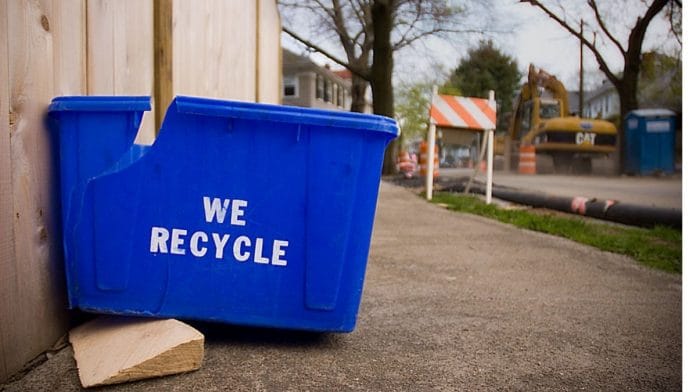If you think recycling as much as possible is the best way to cut your carbon footprint – think again. It’s actually a fair way down the list.
Having fewer children is one of the most effective actions in reducing future greenhouse gas emissions – but this is not widely understood, a new survey finds.
In its Perils of Perception survey, market research firm Ipsos finds that misperceptions are rife about the most effective climate actions.
“Across markets, people on average underestimate the most impactful climate actions they can take, and overestimate the least impactful ones,” Ipsos says.
The survey is a useful reminder of how our perceptions can differ from reality, without advocating that the actions with the biggest impact are appropriate for everyone.
Impact analysis
For example, recycling as much as possible would only save 0.2 tonnes of CO2 per year.
But having one child fewer would save 58.6 tonnes of future carbon emissions – ranking it number one of nine climate impact actions in the survey. Only 11% of people correctly identified this as being among the most effective actions.
The second most impactful climate action in the list is not having a car – which would save 2.4 tonnes of carbon each year. Just 17% of respondents saw this as a top priority in curbing their emissions.
The third best way to cut your carbon footprint is avoiding one long-distance flight lasting six hours or more, which would save 1.6 tonnes of carbon a year. 21% of people surveyed saw this as a carbon-cutting opportunity.
59% of the people surveyed believed recycling would be the best way to reduce their carbon footprint, but this action is ranked 7th out of the nine actions for people living in one of the world’s richer countries.
Using only renewable energy ranked fourth for climate impact. Replacing a typical car with an electric or hybrid vehicle – ranked fifth – was also perceived to be a top three action for climate impact.
Also read: Six reasons why potatoes are good for you
Carbon ranking
Asked what five other actions might appear in a top 30 list of ways of reducing our personal impact on climate change, similar trends emerged.
“Actions such as buying products with less packaging and buying fewer or more durable items are overestimated compared with refurbishing homes for energy efficiency,” Ipsos says.
“Going plant-based makes more of a difference to your carbon footprint than eating locally produced food, but the public guess this is the other way around,” it adds.
Fleeing climate disasters
The proportion of people displaced as a result of climate and weather-related disasters such as hurricanes, storms and flooding was also under-estimated.
Forty three per cent believe more people are displaced by conflict than climate. In fact, two-thirds – 67% – of new displacements in the first six months of 2020 were caused by climate and weather.
Ipsos surveyed more than 21,000 adults in 30 markets including the US, China, India, Malaysia, Argentina and Spain.
This article was first published in the World Economic Forum






